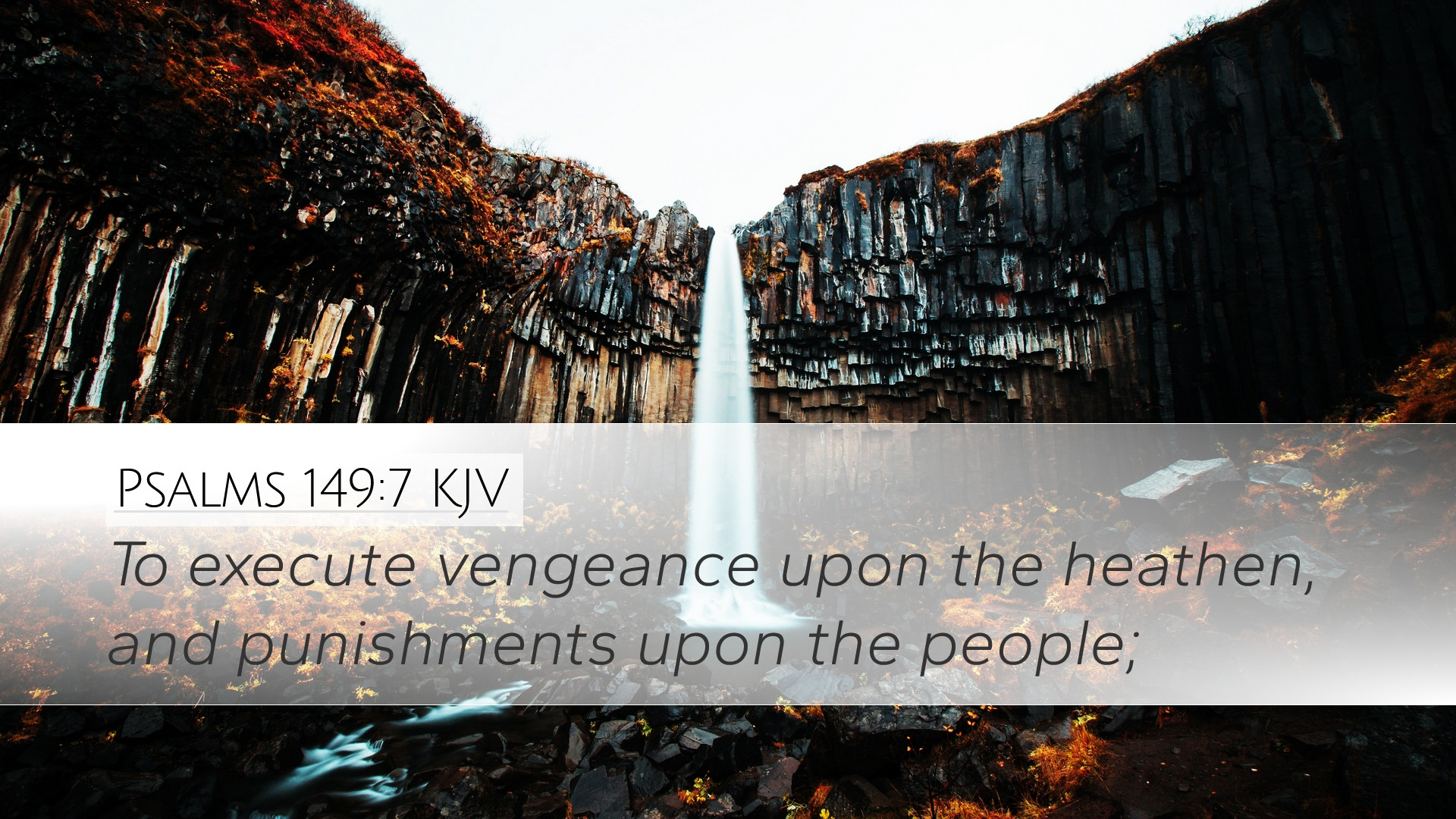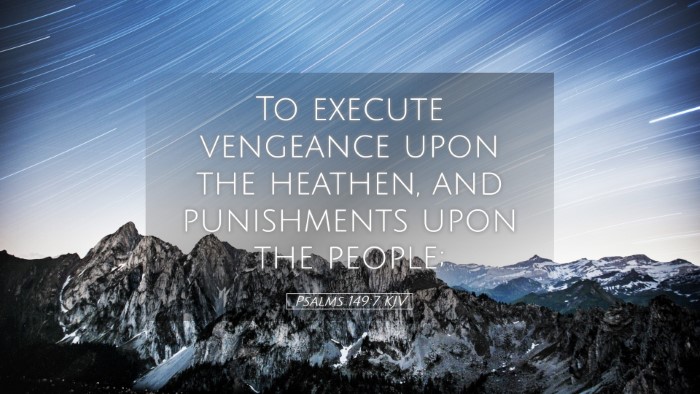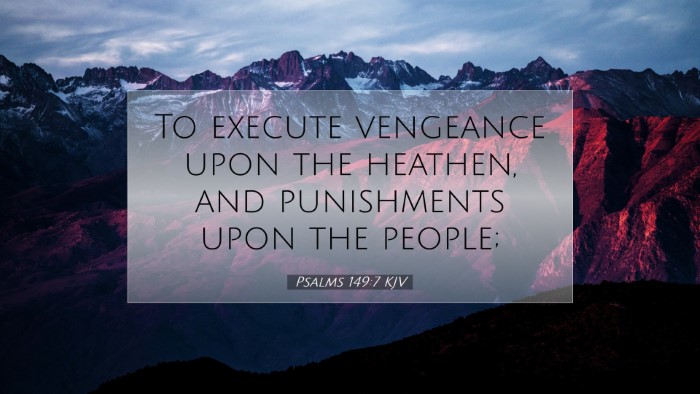Commentary on Psalms 149:7
Psalms 149:7: "To execute vengeance upon the heathen, and punishments upon the people."
Introduction
This verse is situated within a psalm that celebrates the triumph of God's people and their praise for Him. As we delve into Psalm 149, we find a dichotomy rooted in the context of worship and divine judgment. The focus on executing vengeance and punishments upon the heathen reveals the profound theological implications that resonate throughout biblical history and offer a lens through which the faithful can understand God’s justice.
Exploring the Verse: Context and Meaning
This psalm, attributed to a post-exilic context, reflects the restoration of Israel and the consequent call to worship. In verse seven, the psalmist articulates a mandate to God's people: to enact divine judgment upon the nations that have opposed Him. This calls for an examination of the terms "heathen" and "people," emphasizing their relevance in both the ancient and modern contexts.
1. The Concept of Vengeance
Matthew Henry highlights that this verse speaks to the necessity of executing judgment as a part of God's justice. Vengeance in this context is not about personal retaliation, but rather a divine sanctioning of justice. The faithful are to act on behalf of God’s righteous anger against sin and rebellion among the nations.
Albert Barnes elaborates that the idea of vengeance here embodies the complete overthrow of those who defy God's commandments. It asserts that God's people are to be defenders of divine will and justice rather than mere passive recipients of His favor.
2. The Role of Believers
The psalmist portrays the responsibility of believers as not only to worship and praise but also to engage in the cosmic battle against evil. Adam Clarke asserts that "the execution of vengeance" involves more than merely physical acts; it encompasses proclaiming God's truths and ensuring that His righteousness prevails.
This aspect reminds the church of its vocation—critical involvement in the moral and ethical battles within society. Believers are called to stand firm against injustices that oppose God’s kingdom.
3. Theological Implications
The implications of divine vengeance as presented in Psalm 149 raise questions about the nature of God’s justice. Matthew Henry suggests that divine vengeance serves a dual purpose: it brings glory to God, and it serves to warn those outside His covenant. The assertion of God’s power over the nations also reinforces His sovereignty and ultimate authority.
Additionally, Albert Barnes emphasizes that this judgment is rooted in God’s intent for His people to be a holy nation, distinct from surrounding cultures. The expectation is that God's justice will manifest through His people as they live in obedience to His commandments.
Summary and Application
As we meditate on Psalms 149:7, we recognize the profound responsibility bestowed upon believers to engage in spiritual warfare against injustice, idolatry, and unrighteousness. The call to execute vengeance against the heathen serves as a reminder that God’s people are not only participants in His kingdom but also agents of His justice.
In practical application, pastors and theologians must teach congregations about the complexity of divine justice—its destructive and redemptive aspects. The prophetic role of the church includes calling out sin, urging repentance, and demonstrating God's grace amidst His righteous judgments.
- Spiritual Warfare: Understand the importance of spiritual warfare in the life of a believer.
- Divine Justice: Grasp the balance between love and justice in God’s character.
- Global Impact: Reflect on the implications for social justice and advocacy within communities.
Conclusion
Psalm 149:7 is an essential scripture in understanding the holistic picture of God’s justice as it relates to worship, righteousness, and the role of believers. Through a careful examination of public domain commentaries, we are reminded that executing vengeance is a divine prerogative, entrusted to God's people as a call to represent His righteousness on earth, awaiting the ultimate fulfillment of His justice at the culmination of history.


